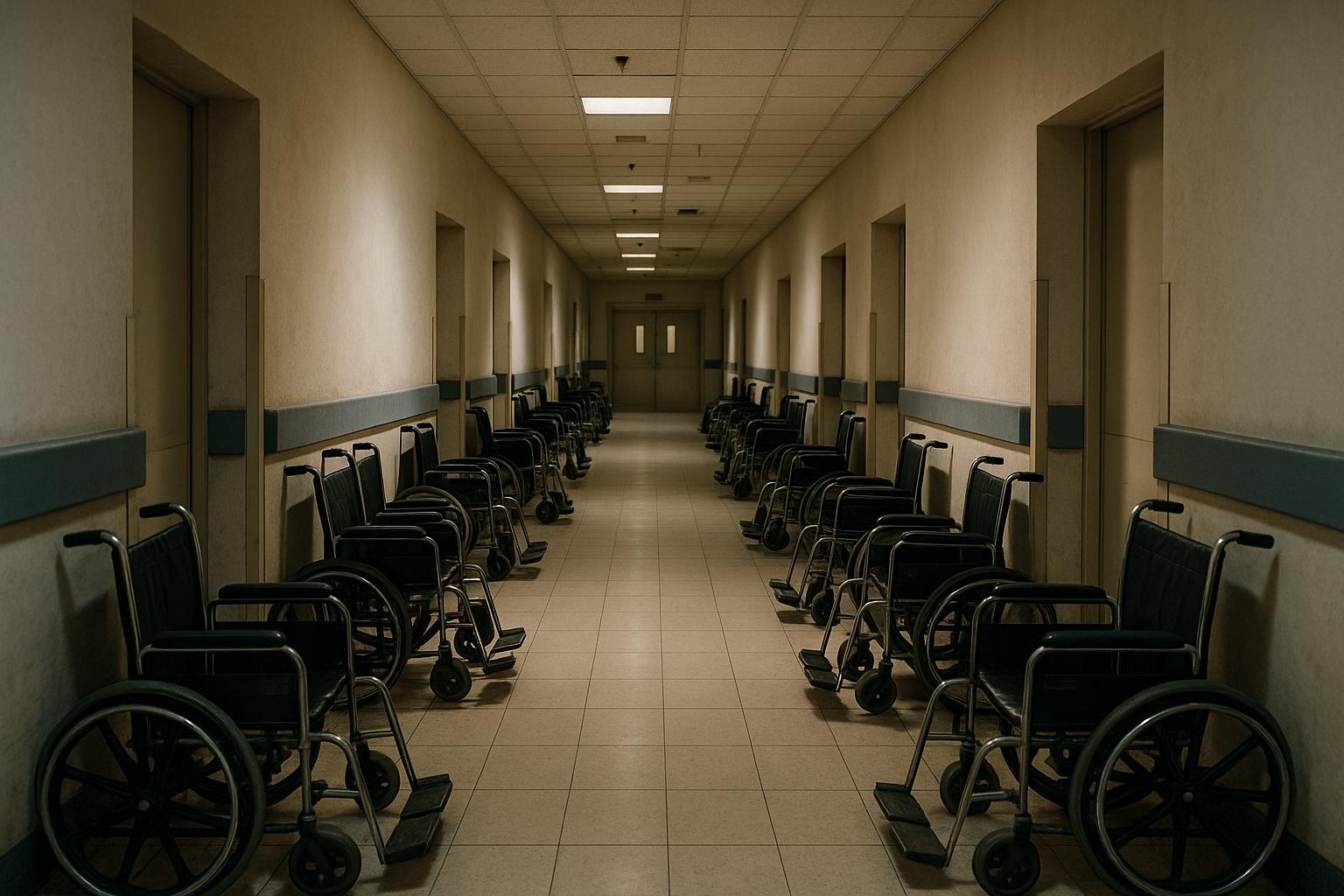The UK Government has recently responded to calls for a review of the Blue Badge Scheme amid growing concerns about individuals facing prolonged NHS waiting times for major surgeries. Conservative MP Alicia Kearns urged the government to consider granting GPs the authority to issue temporary Blue Badges to patients with severe mobility issues who are caught in lengthy hospital queues. She also suggested that any such badges could be subject to reviews every six months to ensure they remain appropriate.
Blue Badges are designed to assist people with physical disabilities or health conditions that significantly affect their ability to walk, allowing them to park closer to their destinations. The scheme provides permit holders the ability to park free of charge in designated disabled parking bays and often exempts them from other parking restrictions, both when driving and travelling as passengers.
In response to Ms Kearns' parliamentary question, Simon Lightwood MP conveyed that the government currently has no plans to modify the Blue Badge system. He emphasised that the scheme is intended for individuals with substantial and enduring mobility impairments, whether visible or hidden, and that badges are generally issued for a three-year period based on enduring disability. According to the government, local authorities administer and assess the scheme within the framework of governing legislation, and there are no proposals to change these local administrative arrangements at present.
Official government guidance stipulates that certain individuals automatically qualify for a Blue Badge. These include people registered as severely sight impaired, those entitled to specific disability payments such as the higher rate mobility component of Disability Living Allowance or Personal Independence Payment, and members of the Armed Forces with permanent and substantial disabilities affecting mobility. Beyond automatic qualification, some applicants may still be eligible if their condition causes serious difficulty or danger when walking, or if they face psychological or behavioural challenges that impede their ability to travel.
Supporting criteria can include a range of conditions, such as severe pain or breathlessness while walking, the need for bulky medical equipment for children under three, or psychological distress that makes journey planning extraordinarily difficult. Local councils typically require comprehensive evidence to assess applications and sometimes grant discretionary badges based on individual circumstances.
The UK government is concurrently engaged in a consultation to review the Blue Badge scheme’s eligibility criteria, focusing on improving clarity and consistency, especially for non-physical disabilities. This consultation aims to ensure the scheme better supports people with enduring mobility impairments caused by both visible and hidden conditions. Even so, any changes to policy or administration would still be locally managed by authorities.
The application process can vary slightly across the UK. In England, Scotland, and Wales, prospective badge holders apply through official government portals, with fees ranging from free in Wales to up to £20 in Scotland, and a maximum of £10 in England. In Northern Ireland, the process differs and is managed by the local government there. Processing times can extend to 12 weeks or more, and applicants may request a review if they feel their application was unfairly declined.
Ultimately, while the government acknowledges the importance of the Blue Badge Scheme in supporting individuals with significant mobility challenges, it currently resists expanding temporary badge issuance tied to NHS waiting times. The scheme remains centred on long-term and enduring disabilities, with local authorities responsible for implementation and evaluation. The ongoing consultation reflects a willingness to refine eligibility criteria, especially to better encompass hidden disabilities, though any immediate changes affecting temporary badges for surgical waitlist patients appear unlikely at this stage.
📌 Reference Map:
- Paragraph 1 – [1] Leicester Mercury
- Paragraph 2 – [1] Leicester Mercury
- Paragraph 3 – [1] Leicester Mercury
- Paragraph 4 – [1] Leicester Mercury, [3] UK Government
- Paragraph 5 – [1] Leicester Mercury, [3] UK Government, [5] Wirral Borough Council
- Paragraph 6 – [2] UK Government consultation
- Paragraph 7 – [1] Leicester Mercury, [3] UK Government, [4] Northern Ireland Government, [6] Welsh Government
Source: Noah Wire Services
